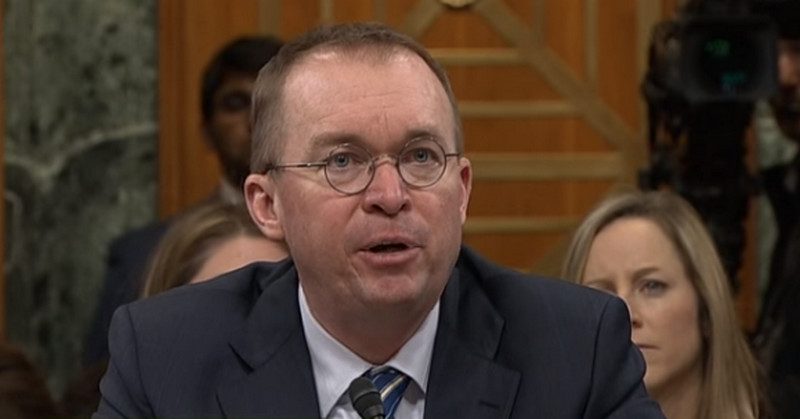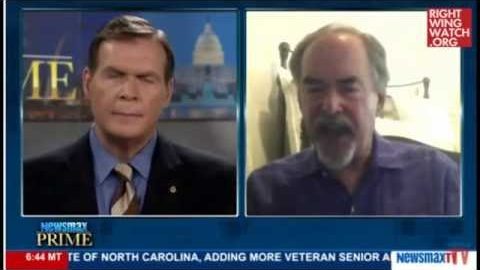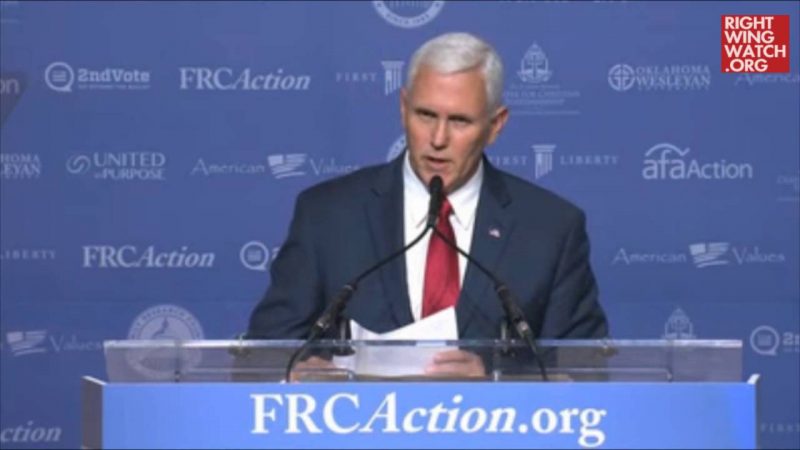One of the Friday afternoon breakout sessions at the Faith and Freedom Coalition’s Road to Majority conference featured Paul Teller, a long-time right-wing activist who now serves as a liaison between the White House and the conservative movement, including right-wing members of Congress. FFC’s Tim Head said that Teller’s hiring during the Trump transition period was “a breath of fresh air” and a clear message to the conservative movement “that this was going to be a very serious policy-driven administration.”
Teller said Trump’s appointment of so many “great constitutional conservatives” to the federal courts will still be creating a ripple effect 25 years from now. In addition to reveling in the administration’s victories, Teller described ongoing projects, including an effort to prevent moderate Republicans and Democrats from using a discharge petition to force a House floor vote on what Teller characterized as an “amnesty-type” immigration bill.
Teller said it has been “amazing” to work in the Trump White House, where “you literally can’t turn a corner without bumping into some other movement conservative.” Teller cited cabinet members, media figures like Kellyanne Conway, and others. “It’s not just some of the famous people,” he said, “It’s deep down.”
As an example, Teller cited Office of Management and Budget Director Mick Mulvaney, who people think of as a “budget guy.” But, said Teller, “Let me tell you–this is a pro-life leader from South Carolina” and an “across-the-board conservative.”
Teller said that in about two weeks, Mulvaney will unveil a plan for a “wholesale reorganization” of the federal government, based on an executive order Trump signed last year. Teller said this isn’t about small changes at the margins, but an effort to “totally redo” the federal government. “Do we need this department? Do we need this agency? Do we need this program? Can this be combined?”
Teller said the plan would be very clear about which changes can be implemented by Trump as head of the executive branch, and which would need to be passed by Congress. Teller said the left had been successful a making incremental but difficult-to-reverse changes and that it is hard to overstate the importance of having someone like Mulvaney “rooting this stuff out in a strategic way.”
In fact, giving “someone like Mulvaney” an assignment to “totally redo” the federal government is a stunning prospect, given Mulvaney’s record as an anti-government founding member of the Freedom Caucus. Politico reported last year that Mulvaney has been “quietly—and radically—trying to dismantle the federal bureaucracy,” including Social Security and Medicare. The same story described Mulvaney as “an ideological bomb-thrower from the congressional fringe who has become an influential player in the Trump administration”:
In the past, he has questioned whether government should fund medical research or student loans, called Social Security a Ponzi scheme, proposed abolishing the Environmental Protection Agency and pushed repeatedly for government shutdowns. In his new gig, he has questioned whether government should fund Meals on Wheels or diabetes treatment for patients who “eat poorly,” called climate action “a waste of your money,” hinted that the Energy and Education departments might be unconstitutional, and suggested he would welcome another shutdown.
None of this is a surprise. Journalist Ed Kilgore responded to Trump’s December 2016 announcement that he was picking Mulvaney to lead OMB “an ominous sign of conservative extremism to come.” After his confirmation hearing, New York Times op-ed contributor Steven Rattner warned against “an extremist holding the purse strings.” Mulvaney was confirmed by the Senate by a vote of 51-49 after all Democrats and Sen. John McCain voted against him.









